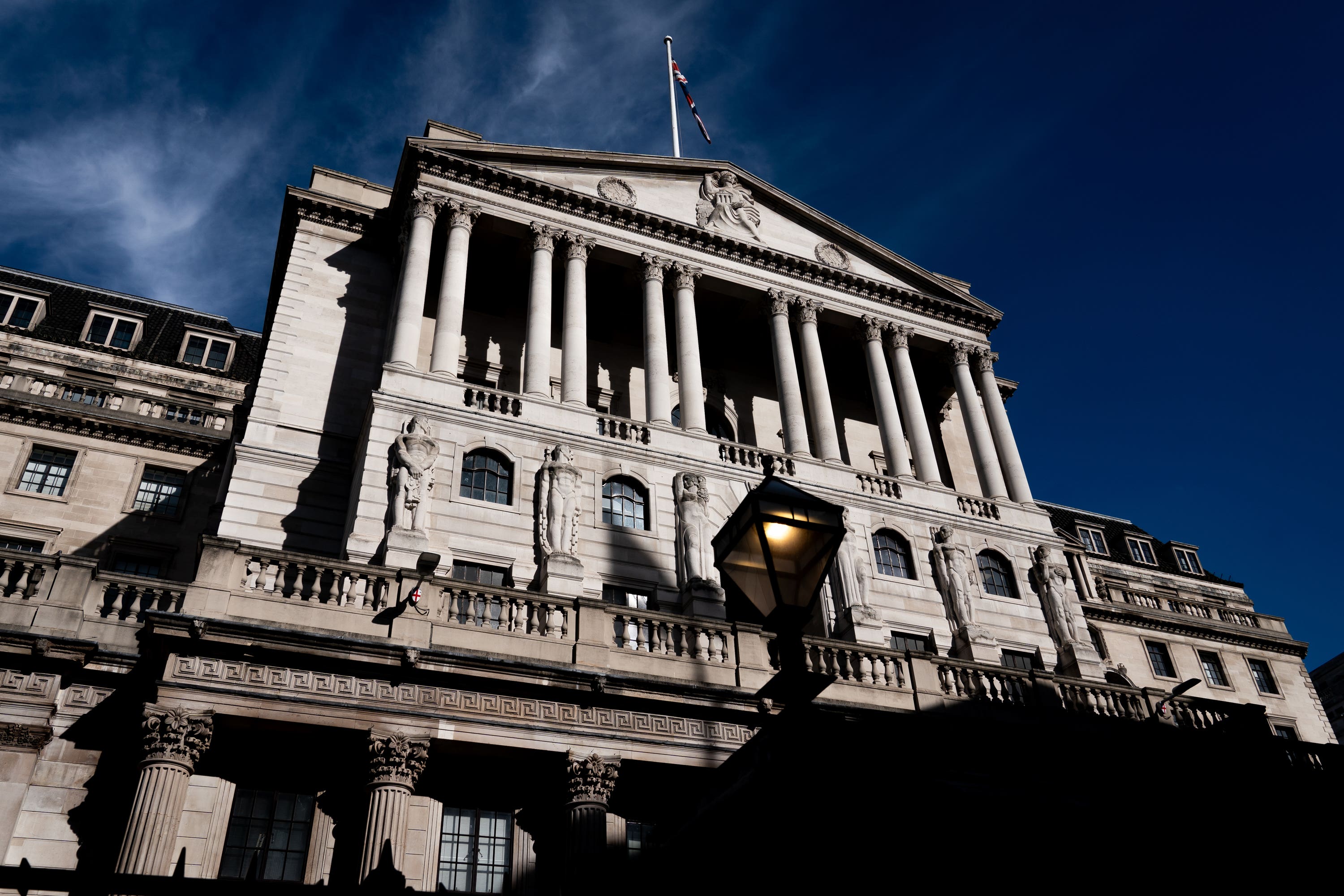Bank of England has relied on ‘inadequate’ forecasts, Lords report says
The report recommended that ‘the Bank’s remit should be pruned by HM Treasury’.

Your support helps us to tell the story
From reproductive rights to climate change to Big Tech, The Independent is on the ground when the story is developing. Whether it's investigating the financials of Elon Musk's pro-Trump PAC or producing our latest documentary, 'The A Word', which shines a light on the American women fighting for reproductive rights, we know how important it is to parse out the facts from the messaging.
At such a critical moment in US history, we need reporters on the ground. Your donation allows us to keep sending journalists to speak to both sides of the story.
The Independent is trusted by Americans across the entire political spectrum. And unlike many other quality news outlets, we choose not to lock Americans out of our reporting and analysis with paywalls. We believe quality journalism should be available to everyone, paid for by those who can afford it.
Your support makes all the difference.The Bank of England has been over-reliant on “inadequate” forecasts and should have its remit “pruned” by the Treasury, a new report from a Lords’ committee has said.
The Lords Economic Affairs Committee also said a “democratic deficit” had opened up as the Bank had not been adequately scrutinised.
But its report concluded that the Bank’s independence from the Government, which was put in place a quarter of a century ago, has worked well and strengthened economic confidence in the UK.
The wide-ranging report instead recommended smaller changes to the way the Bank works.
It said that during the last two years as inflation ran out of control, the Bank seemed unable to produce accurate forecasts of what was to come.
Public confidence in the bankers at Threadneedle Street has plunged as inflation peaked at more than 11% last year, the Lords said.
The report said that many factors, including the renewed invasion of Ukraine in February 2022, had contributed to the inflation. The Bank’s officials have long said that the invasion was impossible for it to forecast.
But, the Lords added, “the persistence of above-target inflation over this period also reflects errors in the conduct of monetary policy, including an over-reliance on inadequate forecasting models”.
The Bank has already recognised that its forecasts have been lacking during this period of flux. In July it appointed Ben Bernanke, who chaired the US Federal Reserve during the 2008 financial crisis, to review its forecasting
The Bank’s job is not to prevent inflation, rather it is to keep inflation at as close to 2% as possible.
The main tool in its box is the base interest rate. This rate essentially works as a guide for how much interest people and companies pay to borrow and how much savers are paid by their banks.
We are concerned that a democratic deficit has emerged, which risks undermining confidence in the Bank and its operational independence
Interest rates used to be set by the Government, but in 1998 the new Labour Government decided to hand the power to the Bank and make it independent from Government interference.
The Lords said that this independence has worked well. But they added that since 1998 the Bank’s remit has expanded without a corresponding increase in oversight from Parliament.
“We are concerned that a democratic deficit has emerged, which risks undermining confidence in the Bank and its operational independence,” it said.
“We therefore believe that current Parliamentary arrangements should be enhanced. In particular, we recommend that Parliament should conduct an overarching review of the Bank’s remit, performance and operations.”
Such a review can be conducted every five years, it said.
The report added: “We recommend that the Bank’s remit should be pruned by HM Treasury, with a focus on the number of matters it is expected to have regard to and consider.”
The Bank of England said: “We’d like to thank the Lords EAC for this report and will be giving the recommendations careful consideration. We’ll respond formally in due course.”Bank of England